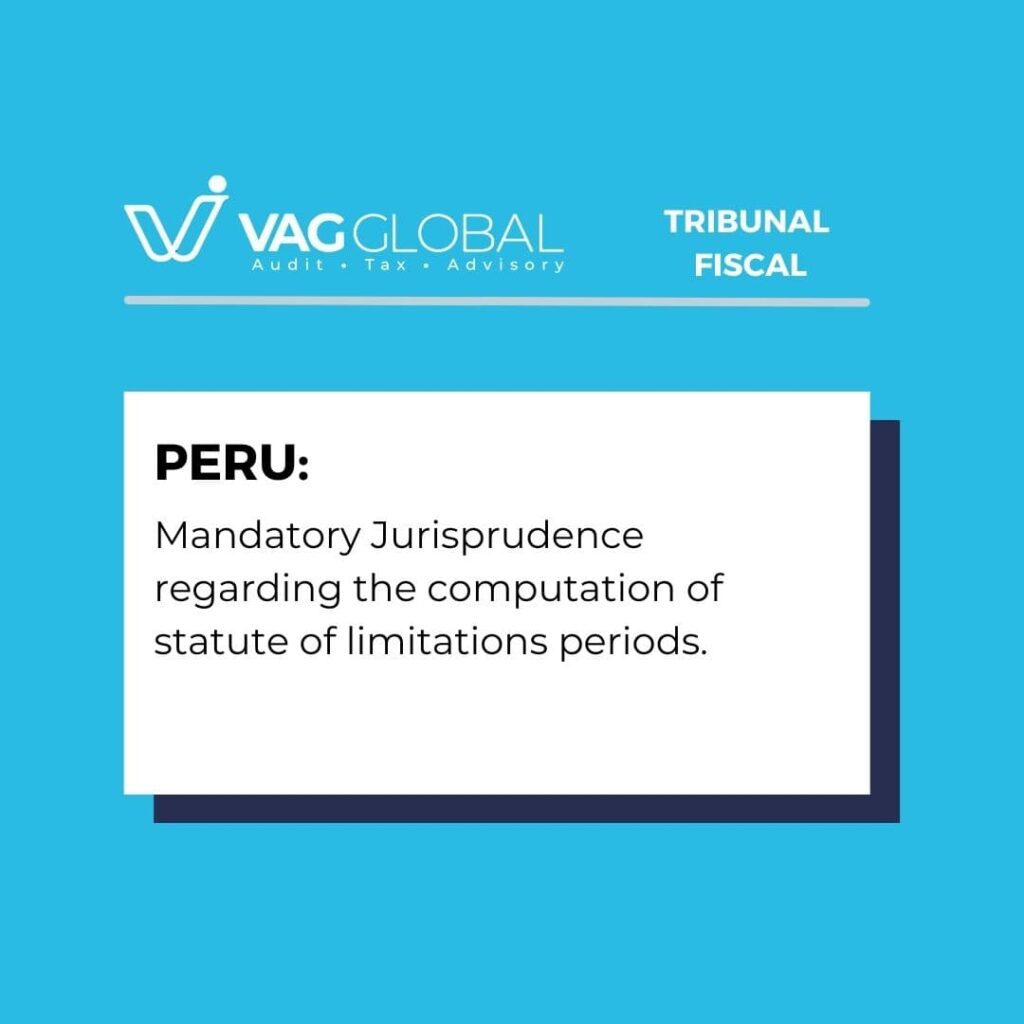Through the Resolution of the Tax Court of Mandatory Observance No. 01705-4-2022, published today, the computation of the statute of limitations regarding third category income tax payments on account begins on January 1st of the year following the due date, according to numeral 2 of article 44 of the Tax Code.
1. Background
This is a partial appeal against the Intendancy Resolution issued by Intendancy of Major National Taxpayers of the SUNAT (Superintendencia Nacional de Aduanas y de Administración Tributaria – National Superintendence of Customs and Tax Administration), that declared unfounded the request for the prescription of the Administration’s action to determine the payments on account of Income Tax from January to November 2013.
Based on the foregoing, the appellant argues that the authority of the Administration to determine the tax liability for the payments on account of the Income Tax from January to November 2013 expired on the first business day of 2018, before the filing of the statute of limitations request.
The appellant points out that the computation of the 4-year statute of limitations period, applicable in its case by having filed the respective affidavits on time, began on January 1, 2014, under the protection of numeral 2 of Article 44 of the Tax Code, and culminated on the first business day of 2018, in the absence of any act of suspension.
For that person, the audit procedure initiated by the Administration did not interrupt the statute of limitations period because when it occurred, the statute of limitations had already operated.
2. Arguments of the Tax Court
According to the Tax Court, on September 8, 2021, through the brief filed, the appellant requested the statute of limitations, among others, of the action of the Administration to determine the tax obligation corresponding to the payments on account of Income Tax from January to November 2013; a claim that was declared unfounded.
In this sense, the matter in controversy consists of determining whether the action of the Administration to determine the payments on account of the Income Tax for January to November 2013 was time-barred as of the date of filing of the aforementioned request.
For the Tax Court, concerning the beginning of the computation of the statute of limitations concerning the payments on account of Income Tax, it should be noted that this Court has identified pronouncements in the sense that the computation of the statute of limitations concerning the payments on account of the third category Income Tax begins on January 1 of the year following the date on which they are due, under numeral 2 of article 44 of the Tax Code.
For this reason, through Resolution of the Plenary Chamber Meeting No. 2022-01 of February 22, 2022, the following criterion is applicable: “The computation of the statute of limitations concerning payments on account of third category income tax begins on January 1st of the year following the date on which they are due, under numeral 2 of article 44 of the Tax Code”.
According to the criteria of the aforementioned citation, the computation of the statute of limitations of the action to determine the payments on account of Income Tax from January to November 2013 began on January 1, 2014, under numeral 2 of article 44 of the Tax Code, and would culminate, if there are no causes for the interruption and/or suspension, on the first business day of 2018.
3. Ruling of the Tax Court
It resolved, since no cause for interruption or suspension of the aforementioned statute of limitations periods before the due date (first business day of January 2018) was verified in the case file, i.e., as of September 8, 2021, the statute of limitations of the Administration’s action to determine the payments on account of Income Tax from January to November 2013 had already operated.
In this sense, the Tax Court proceeded to revoke the appealed resolution in the challenged point and declared that this resolution constitutes case law of mandatory observance.
Source: Diario “El Peruano” 15/03/22
